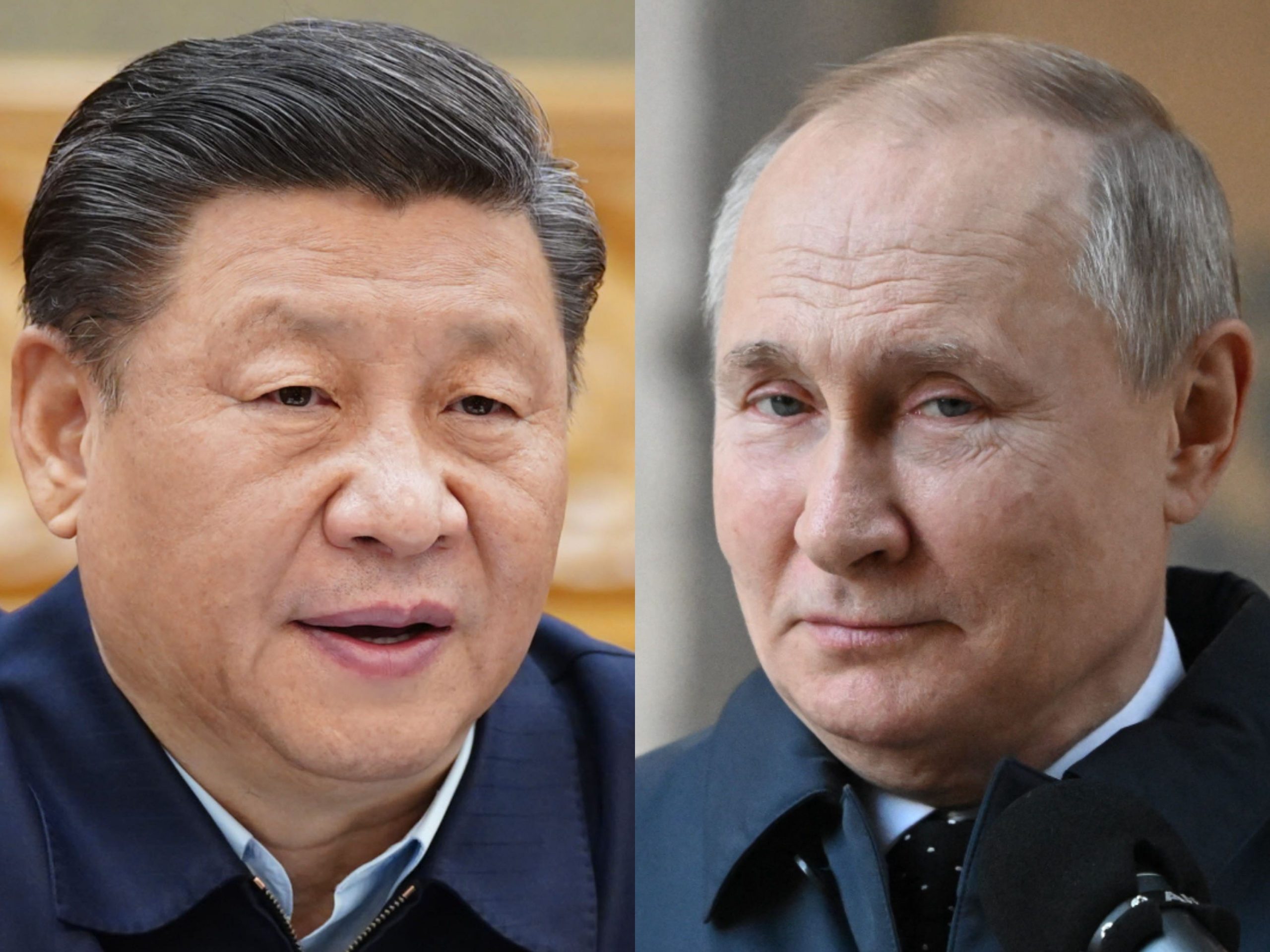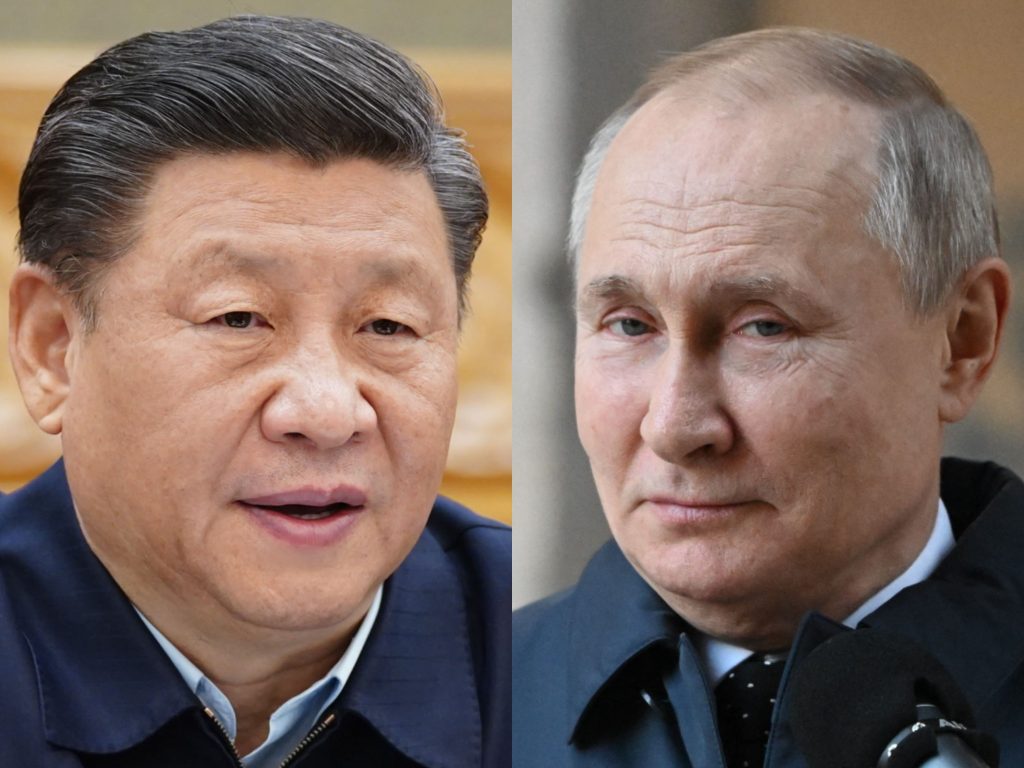
- Russia owns around $140 billion in Chinese bonds, per estimates by analysts cited by Bloomberg.
- The yuan debts are held by the Bank of Russia and the National Wealth Fund, the analysts said.
- Russia could use the bonds to cushion the blow from Western sanctions, they said.
Russia's central bank and sovereign fund own around $140 billion in Chinese bonds, according to estimates by the Australia & New Zealand Banking Group (ANZ), which were cited by Bloomberg.
This could be used to cushion the blow from sanctions Western nations imposed on Russia after it invaded Ukraine, analysts at the group said in a report Wednesday.
The estimates suggest that the Bank of Russia could hold around $80 billion of yuan debt and the National Wealth Fund could own $60 billion, Bloomberg reported.
Russia's roughly $140 billion in bonds makes up almost a quarter of all foreign ownership in China's domestic bond market, the analysts wrote, per Bloomberg.
Western nations have tried to tank Russia's economy by imposing huge financial sanctions after it invaded Ukraine. Actions so far have included blocking transactions from the country's central bank, barring Russian aircraft from their airspace, and banning some bands from using SWIFT.
But as other countries cut ties with Russia, China has said it opposed Western sanctions and appears unwilling to criticize Russia over the invasion.
"Russia's China bond holdings and CNY could be major foreign assets and currency that Russia can access," the ANZ analysts wrote in the report, per Bloomberg. "We are watching if Russia will liquidate the assets if CNY cash is needed to meet other payment obligations."
It added that Russia could use both its yuan assets and China's SWIFT alternative for cross-border transactions to lessen the impact of some sanctions.
